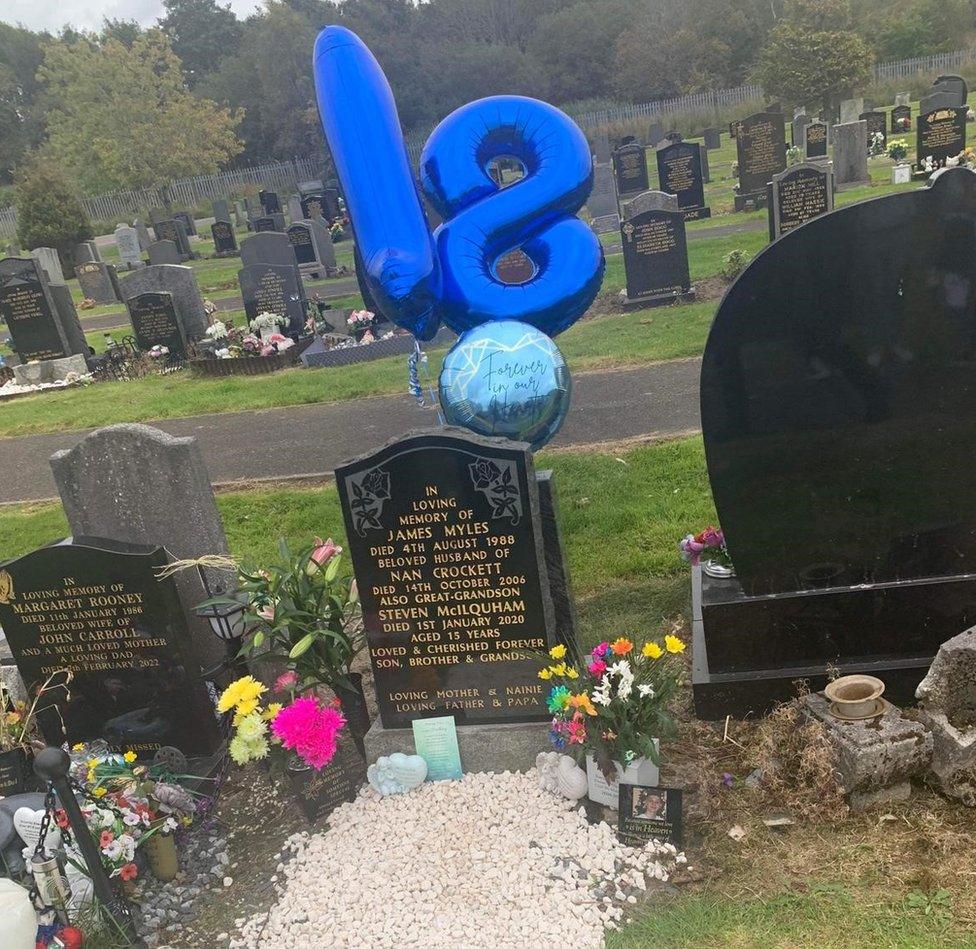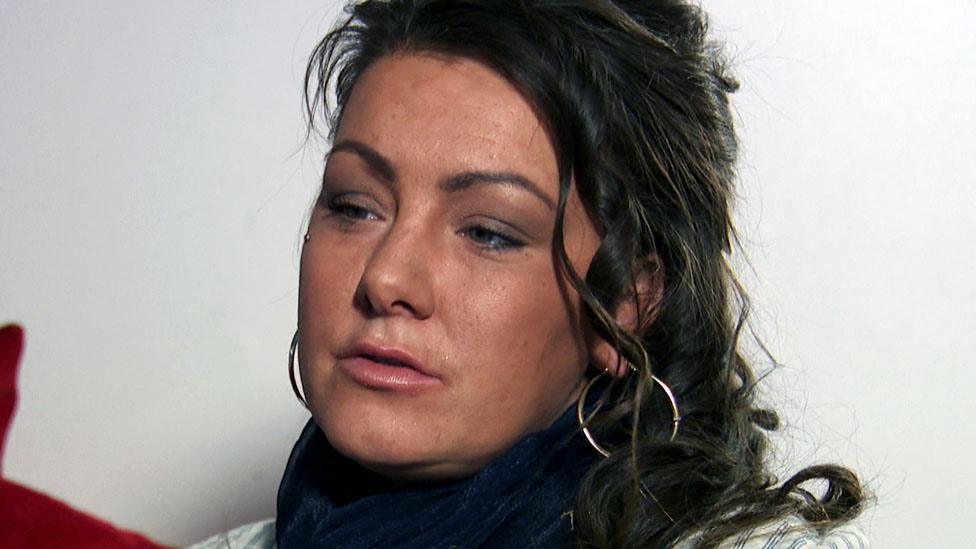Wishaw mum's agony after son's hit-and-run killer avoids jail
- Published
'He knocked my boy down and he drove away'
A Lanarkshire mum says she has been failed by the justice system after the driver who killed her son avoided jail because of his age.
Amanda McIlquham's son Steven died on New Year's Day 2020.
The 15-year-old was walking to his grandparents' house in Wishaw when he was hit by a Volkswagen Golf.
He was crossing Alexander Street, at its junction with Marshall Street when 22-year-old Brian Buchanan struck him, doing 45mph in a 30mph zone.
Steven was thrown on to the windscreen and over the top of the car, suffering severe head injuries.
Despite efforts to revive him by passing off-duty nurses, he died at the scene.
Steven's mother, Amanda, was in the local police station to report her son missing when she learned of the collision which happened a little over a mile from the family home.
She told BBC Scotland: "I didn't want to go into the police station. But he was late and we had looked for him. Then we got told the news he had been killed in a road traffic accident. I remember screaming."

Steven McIlquham with his mum and sister Erin at Christmas 2018
She is still trying to come to terms with what happened.
"I just get up every day and try my best to be mum to [his sister] Erin. I don't want to be miserable every day but I feel - why my son when he had so much to live for and he was such a happy go lucky wee boy?
"He never saw his 16th, he never saw his 18th and that kills me for him to not have that life. He was such a blessing.
"My life's ruined, his sister's life is ruined, the whole family's lives are ruined. He didn't deserve this and the justice system failed him."
Brian Buchanan admitted causing Steven's death by careless driving and failing to stop after the fatal crash.
But at Hamilton Sheriff Court last week, he was spared a custodial sentence - because of his age.
The sheriff - Martin Jones KC - said he was "constrained" in his sentence because of current guidelines on sentencing people under 25.

Steven was hit by a car on Alexander Street in Wishaw on 1 January 2020
Despite previous convictions for careless driving and speeding he was handed 300 hours of unpaid work, a three-year driving ban and ordered to wear a tag for six-months.
He will be under supervision and have to resit an extended driving test at the end of his ban.
Mrs McIlquham said no sentence would ever be enough, but she was not prepared for her son's killer to walk out of the court.
"No one had said he wouldn't go to jail," she said. "I thought he would go to jail.
"I don't understand it. I know he is a young lad but he drove away. He knocked my boy down and drove away. He knew what he had done."
She added: "I am disgusted with the Scottish law. Does my boy's life not count?
"It sends out the wrong signals to anybody under 25. Just go out, do what you want and you will get away with it because they don't want to put anybody in jail.
"He belongs behind bars. He has still got his whole life. It's all wrong and justice was not served."

Mrs McIlquham treasures her memories of Steven
Sentencing guidelines were approved by the High Court earlier this year.
The approach is that a custodial sentence should only be imposed on a young person when the court is satisfied that no other sentence is appropriate.
A Scottish Sentencing Council spokeswoman said: "Academic research shows that a young person will generally have a lower level of maturity, and a greater capacity for change and rehabilitation, than an older person.
"Based on this research, the Sentencing Young People guideline focuses on rehabilitation as a primary consideration in sentencing. Rehabilitation helps to reduce reoffending, preventing there being victims in the future."

The family recently marked what would have been Steven's 18th birthday at the grave he shares with his great grandparents
She said that sentencing remained a matter for the court.
"Sentencing guidelines are not straitjackets and each independent judge or sheriff will decide on a sentence based on the unique circumstances of a particular case.
"The full range of sentencing options, including imprisonment or detention, remains open to the court."
The case has also highlighted calls for tougher sentencing in cases where driving offences lead to death.
The Scottish Sentencing Council is currently carrying out a public consultation, external on sentencing in such cases which ends on 22 November.
- Published26 January 2022

- Published15 September 2021

- Published28 February 2020

- Published2 January 2020
